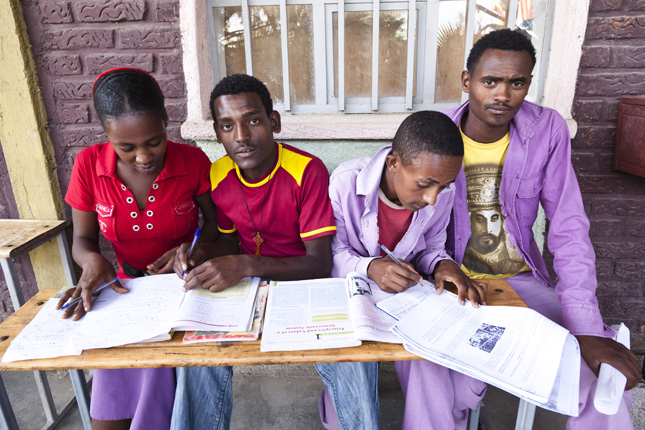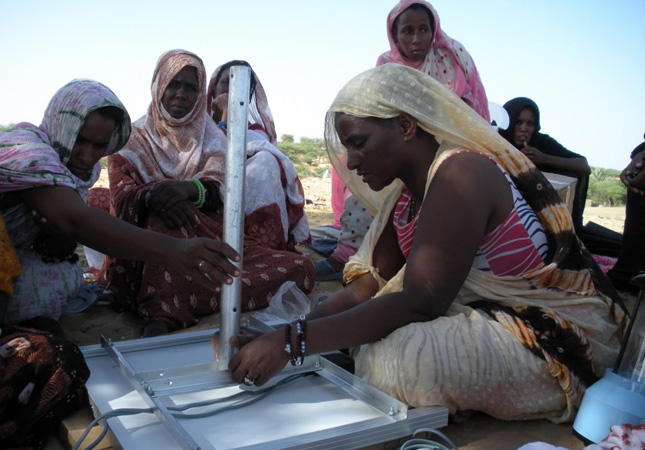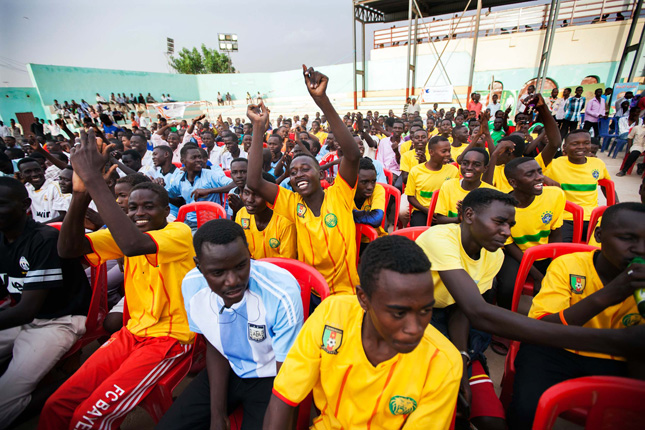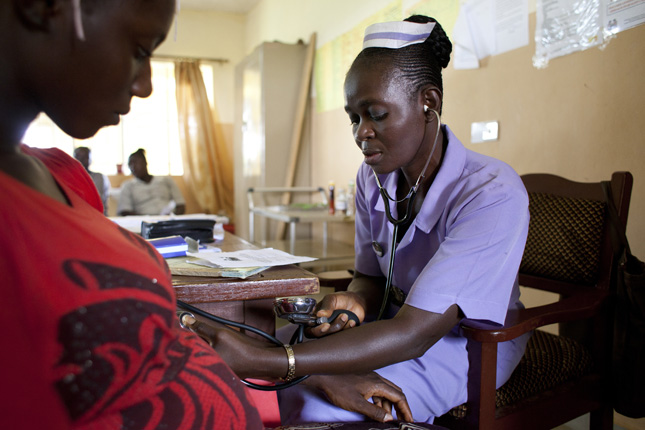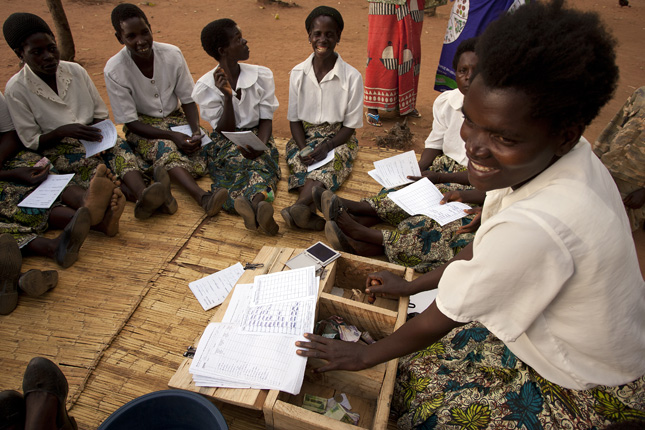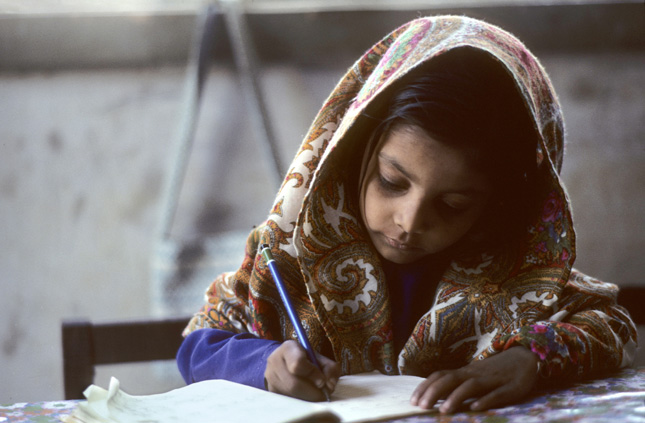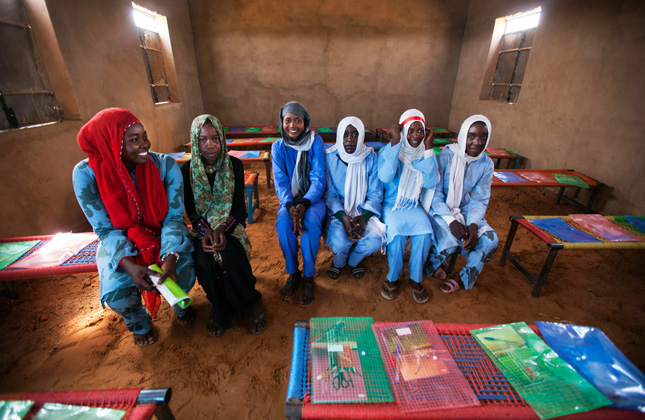-
To Fight Climate Change, Educate and Empower Girls
›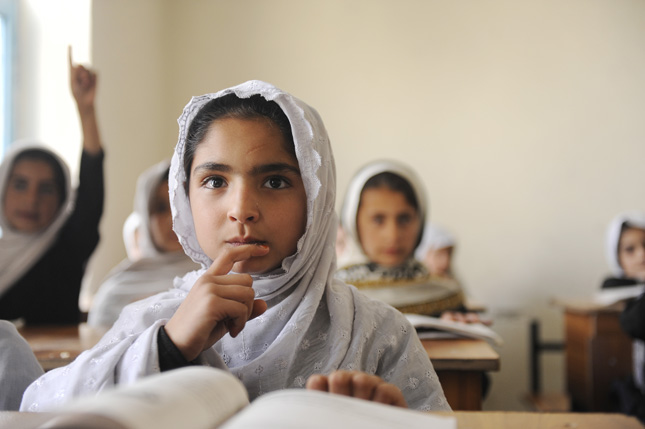
Girls and women bear the brunt of climate change impacts. Natural disasters kill more women than men: an estimated 90 percent of those killed in some weather-related disasters were female. The effects of climate change on natural resources can also further exacerbate existing gender inequalities. Girls may be kept out of school to fetch water, as droughts drive them to walk farther and farther to find it. Seeking to stretch scarce household resources, families may marry off their daughters before the legal age and they may become more vulnerable to human trafficking after natural disasters.
-
Ensuring Today’s Youth Become Tomorrow’s Successful Adults
›
The future of global security will depend in large part on the fate of today’s 1.2 billion young people. Do youth between the ages of 15 and 24—a critical phase of life—possess the necessary social, physical, intellectual, and financial building blocks to underpin productive, healthy adulthoods? Or do they lack this solid base, putting them at risk of personal and social instability?
-
Energizing Equality in the Energy Sector
›
Every day, millions of people flip switches to turn on the lights or warm up the house, while millions of others light candles or wood-fired stoves. While most people know that the source of the energy we use varies according to where we live, many don’t realize that energy decisions are not gender neutral. Every country’s policy decisions about energy production and use have significant implications for women’s empowerment and the level of equality (or inequality) between women and men.
-
All in a Generation: Stopping Conflict, Building Peace, and Saving the Environment
›September 21, 2017 // By Anuj Krishnamurthy
Today, world leaders gathered in New York for the United Nations General Assembly will celebrate the International Day of Peace, observed annually since 1981. This year’s Peace Day is centered on the theme of togetherness, and the importance of securing safety and dignity for all people – including youth. By all accounts, young people are critical to the success of peacebuilding efforts, and the dignitaries at the United Nations would do well to consider how empowered youth can make meaningful contributions to the fields of governance and development. Already, young people around the world are being called upon to protect natural resources, facilitate transboundary dialogue, and resist injustice. And as new threats to human security – including climate change and environmental degradation – emerge, harnessing the full potential of youth will prove essential to initiating a new chapter of sustainable peace.
-
A Little Respect: Improving Maternity Care
›
“Disrespect and abuse during facility-based childbirth is a very widespread phenomena with different manifestations,” said Rima Jolivet from the Maternal Health Task Force (MHTF) during a recent webinar hosted by MHTF and Ariadne Labs on the need for respectful maternity care (RMC). Jolivet was joined by Katherine Semrau from Ariadne Labs, Rose Molina from Beth Israel Deaconess Medical Center and Ariadne Labs, Saraswathi Vedam from Birth Place Lab, and David Sando from the Harvard T.H. Chan School of Public Health.
-
Saving for a Rainless Day: Microfinancing for Resilience
›
“The sooner you save, the better off you’ll be in life, wherever you live, at whatever age you start,” said Sophie Romana, director of community finance at Oxfam America: “Saving is the key.” Microsavings groups—informal community-based financial pools–can help vulnerable communities build resilience, said representatives from support organizations CARE International, Oxfam America, and the Grameen Foundation at a Wilson Center event on June 29, 2017.
-
The Economic Costs of Child Marriage
›
“It’s essentially an issue of a lack of viable alternatives,” said Quentin Wodon, lead economist for the World Bank’s Education Global Practice at a recent event on child marriage at the World Bank. “We have to create those alternatives.” Wodon co-presented the results of a new research study, “At What Cost? The Economic Impacts of Child Marriage,” by the World Bank Group and the International Center for Research on Women (ICRW).
-
Sustainable Development Approaches to Youth and the Demographic Dividend
›
“Investing in youth is a recipe for success,” said Elizabeth Dawes Gay, senior policy analyst at the Population Reference Bureau (PRB), during a webinar on June 22, 2017, organized by PRB’s PACE project on the connections between the population, health, environment (PHE) approach to international development, and achieving the demographic dividend.
Showing posts from category gender.


